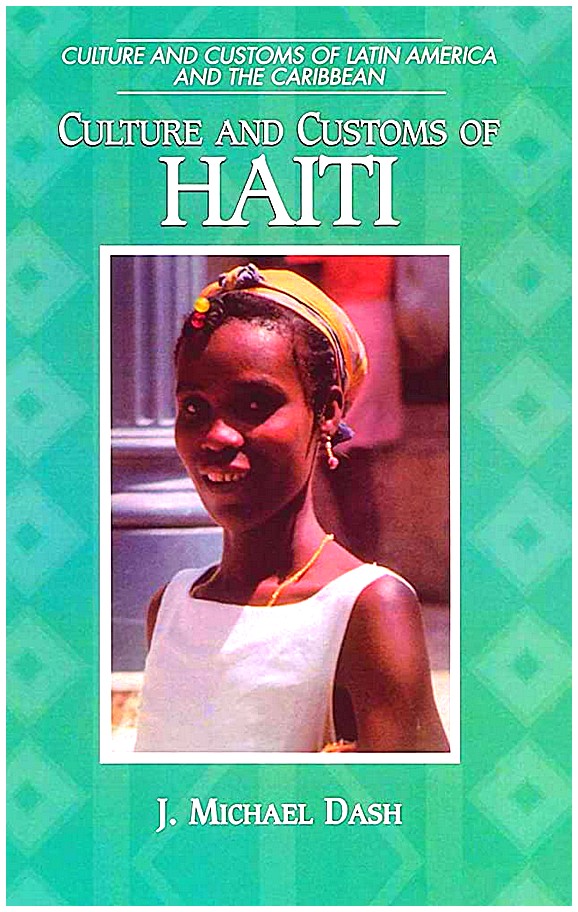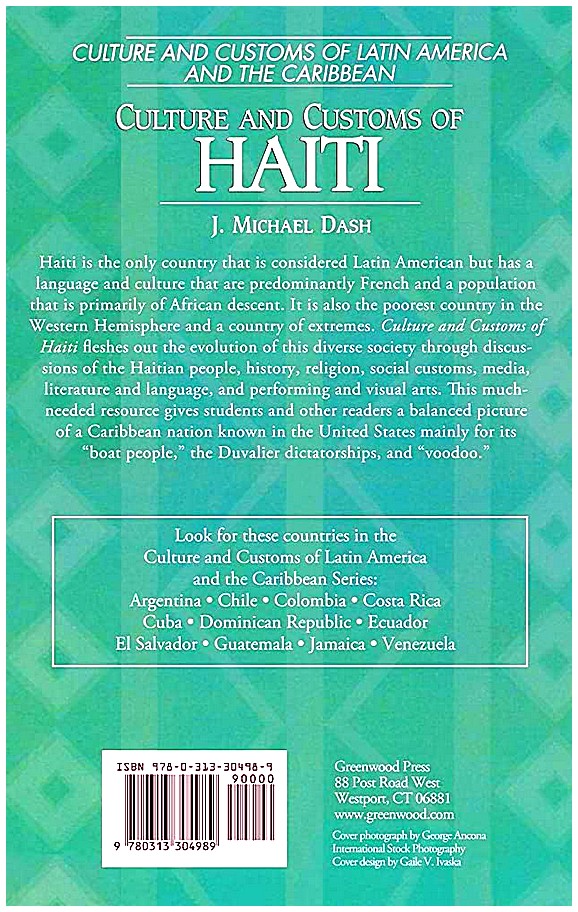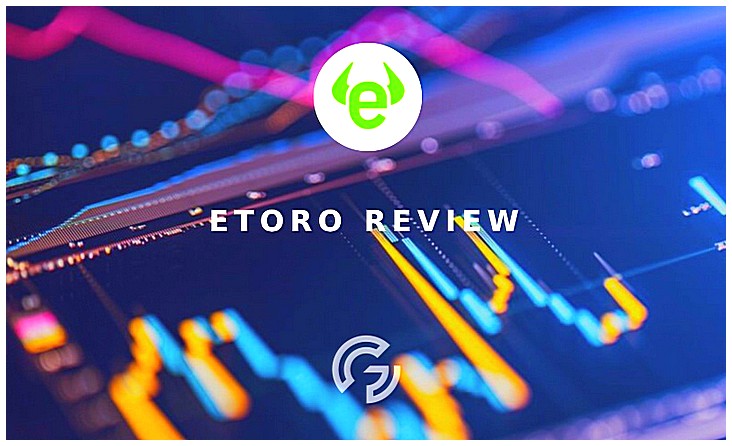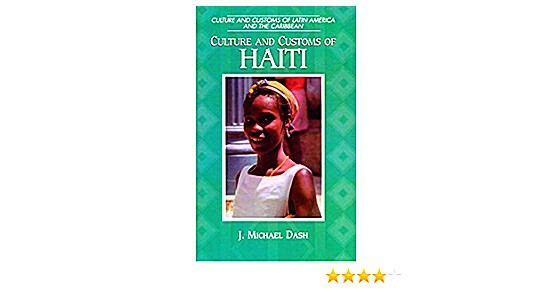Introduction to eToro and Haiti

This article will explore the cultural diversity of two unique countries: eToro and Haiti. We will look at their history, customs, languages, religions, art forms and more to gain a better understanding of how these two cultures differ from one another. Additionally, we will discuss how each country has embraced modernity while still maintaining its traditional values. By examining both eToro and Haiti’s culture in depth, readers can gain an appreciation for the rich cultural heritage that exists between them.
A Brief History of eToro

eToro is a global social trading and investing platform that was founded in 2007 by brothers Yoni and Ronen Assia. It has since grown to become one of the largest online brokers, with over 10 million users from more than 140 countries around the world. eToro allows users to trade stocks, currencies, commodities, indices, ETFs and cryptocurrencies. The company also offers copy-trading services which allow traders to follow other successful traders’ strategies.
In 2023, eToro launched its GoodDollar project in Haiti as part of their commitment to financial inclusion for all. This initiative provides Haitians with access to free digital currency (G$) which can be used for everyday transactions such as buying food or paying bills. The G$ tokens are backed by donations from members of the eToro community who wish to support this cause.
The partnership between eToro and Haiti has been incredibly beneficial for both parties involved – it not only helps provide Haitians with much needed financial assistance but also gives them an opportunity to learn about cryptocurrency trading through eToro’s platform. This initiative is just one example of how eToro is helping promote cultural diversity across the globe while providing innovative solutions for people everywhere who need access to better financial opportunities
The Impact of Globalization on eToro Culture

The globalization of eToro has had a significant impact on its culture. With the influx of people from different countries, cultures, and backgrounds, eToro’s cultural diversity has grown exponentially. This has allowed for new ideas to be shared among members of the community, leading to an increase in creativity and innovation within the company. Additionally, it has opened up opportunities for employees to learn about other cultures and gain valuable insights into how they operate. As a result, this increased understanding can help create more effective strategies when working with customers or partners from different parts of the world. Furthermore, globalizing eToro’s culture allows for better collaboration between teams as well as improved communication across departments which ultimately leads to higher productivity levels throughout the organization.
Religion in eToro and Haiti

Religion plays an important role in the cultural diversity of both eToro and Haiti. In eToro, the traditional religion is based on animism, which includes a belief in spirits that inhabit natural objects such as trees and rocks. Animism also includes ancestor worship and respect for the environment. This belief system has been practiced by generations of eTorans since before recorded history.
In Haiti, Christianity is the dominant religion with Roman Catholicism being the most widely practiced faith. Voodoo is also an important part of Haitian culture and many Haitians practice it alongside their Christian beliefs. The syncretic nature of Haitian voodoo blends African spiritual traditions with Catholic saints to create a unique religious experience for practitioners in Haiti.
Language in eToro and Haiti
Language is an important part of any culture, and eToro and Haiti are no exception. In eToro, the official language is Hebrew, while in Haiti it is French. Both countries also have their own unique dialects that are spoken by locals. In addition to these languages, English has become increasingly popular as a second language in both countries due to its widespread use for business and international communication.
In eToro, Hebrew remains the primary language used in everyday life; however, there has been an influx of immigrants from other parts of the world who bring with them different languages such as Arabic or Russian. As a result, many citizens now speak multiple languages fluently which contributes to the cultural diversity found within this country.
In Haiti on the other hand, French remains the primary language used for formal occasions such as government meetings or school classes; however Creole is widely spoken among Haitians in informal settings like family gatherings or marketplaces. This blend of two distinct languages gives Haitian culture its unique flavor and allows individuals to express themselves more freely than they would be able to do so if only one language was present.
Overall, exploring the cultural diversity between eToro and Haiti reveals how each country’s respective language plays an integral role in shaping their individual cultures – providing insight into what makes them both so special!
Music, Art, and Dance in eToro and Haiti
The cultures of eToro and Haiti are incredibly diverse, with each nation boasting its own unique customs and traditions. One of the most prominent aspects of these two nations’ cultures is their shared appreciation for music, art, and dance. In both countries, music plays an important role in everyday life as a form of expression and celebration. Art is also highly valued by both societies, with many Haitian artists utilizing vibrant colors to create stunning works that reflect their culture’s vibrancy. Finally, dance is another integral part of the cultural landscape in both eToro and Haiti; from traditional dances like the meringue to modern hip-hop moves, dancing has become an essential way for people to express themselves while having fun. By exploring the various forms of music, art, and dance found in eToro and Haiti we can gain insight into how these two distinct cultures interact with one another despite their differences.
Cuisine in eToro and Haiti
eToro and Haiti are two countries with distinct cultures that have been shaped by their unique histories. eToro is a small island nation located in the Mediterranean Sea, off the coast of Greece. It has a long history of trading and cultural exchange with other nations, particularly those from the Middle East and North Africa. The cuisine of eToro reflects this diversity, incorporating flavors from all over the world while still maintaining its own distinctive identity. Dishes such as moussaka (a layered eggplant dish), kleftiko (lamb cooked slowly in a sealed pot) and baklava (sweet pastry filled with nuts) are popular throughout the country.
Haiti is an island nation located in the Caribbean Sea that was colonized by France during colonial times. Its cuisine is heavily influenced by French cooking techniques but also incorporates ingredients native to Haiti like plantains, beans, yams and seafood into dishes like griot (fried pork marinated in citrus juice), joumou soup (pumpkin stew) or tassot de cabrit (goat meat cooked with onions). Other influences include African flavors found in dishes such as akra fritters made from mashed black-eyed peas or diri djon djon which uses mushrooms to give it its signature black color. Both countries offer delicious food options for visitors looking to explore their diverse culinary heritage!
Social Structures of Both Cultures
eToro is a modern, diverse society that has developed from a combination of influences from different cultures. Its social structure reflects the variety of its population and their backgrounds.
In eToro, there are several distinct social classes based on wealth and occupation. The upper class consists of business owners, politicians, professionals, and other high-income earners. They enjoy considerable economic power and influence in the country’s politics and economy. The middle class includes those who work in white-collar jobs such as teachers, engineers, accountants, lawyers, etc., while the lower class consists mainly of blue-collar workers like laborers or factory workers.
Haiti is also a culturally diverse nation with many different ethnic groups living together in harmony for centuries. Haitian society is divided into two main classes: peasants (small farmers) and elites (wealthy landowners). Peasants make up about 80% of Haiti’s population; they typically live in rural areas where subsistence farming is their primary source of income. Elites control most landholdings as well as businesses throughout Haiti; they are usually concentrated around major cities such as Port-au-Prince or Cap Haitien. There is also an emerging middle class composed mostly of educated professionals who have moved to urban centers seeking better job opportunities than what was available to them back home in rural areas
Gender Roles within the Two Cultures
Gender roles are an important part of any culture, and eToro and Haiti are no exception. In eToro, gender roles have traditionally been quite rigidly defined with men expected to take on the role of provider and protector while women were seen as responsible for domestic duties such as childcare and housekeeping. Women in eToro also often had fewer economic opportunities than their male counterparts.
In Haiti, gender roles have historically been more flexible with both men and women taking on a variety of roles within the family structure. However, there is still a tendency for men to be viewed as breadwinners while women are expected to handle household responsibilities like cooking, cleaning, and caring for children. Despite this traditional view of gender roles in Haitian society, there has been progress made towards greater equality between genders in recent years with more women entering into professional fields such as law or medicine that were once dominated by men.
Overall it is clear that both cultures place importance on traditional gender roles but also recognize the need for increased equality between genders when it comes to access to education or employment opportunities. It will be interesting to see how these two cultures continue to evolve over time regarding their views on gender dynamics.
Challenges Faced by Each Culture
eToro:
1. Understanding the complexities of a global economy and how it affects local markets.
2. Adapting to changing customer needs in different countries and regions.
3. Developing strategies for dealing with cultural differences in language, customs, values, and beliefs between eToro’s customers around the world.
4. Overcoming technological barriers that prevent access to certain services or products due to lack of infrastructure or limited resources in some areas where eToro operates its business operations.
5. Establishing trust among customers from different cultures who may have conflicting views on financial matters such as investments or risk management strategies .
Haiti:
- Dealing with poverty levels that are much higher than other countries in the region due to decades of political instability and economic mismanagement .
- Addressing food insecurity caused by inadequate agricultural production resulting from environmental degradation, deforestation, soil erosion, drought conditions, flooding , etc .
3d Implementing effective health care systems for a population suffering from high rates of infectious diseases like HIV/AIDS and malaria as well as chronic illnesses such as diabetes and hypertension .
4th Improving education standards so that children can gain access to quality learning opportunities despite limited resources available at schools across Haiti . 5th Building strong infrastructure networks (roads , bridges , ports ) which would enable better communication within the country as well as facilitate trade with other nations
| eToro | Haiti |
|---|---|
| Geography: Middle East, Europe, USA and Asia Pacific regions. | Geography: Caribbean island located between the Dominican Republic and Cuba. |
| Population: Over 10 million users worldwide. | Population: Approximately 11 million people. |
| Language: English, Spanish, French and German are supported languages on the platform. | Language: Haitian Creole is the official language; French is also spoken by many people in Haiti. |
| Religion: No official religion; diverse religious beliefs among its members including Christianity, Judaism and Islam. Religion: Predominantly Roman Catholic with a small percentage of Protestants as well as some Voodoo practitioners. |
What are the major cultural differences between eToro and Haiti?
The major cultural differences between eToro and Haiti are primarily rooted in their respective histories. eToro is a modern, global financial trading platform that operates online and is based in Israel. It has a strong emphasis on technology, innovation, and entrepreneurship. In contrast, Haiti has a long history of colonization by various European powers as well as the United States which has left it with an economy heavily reliant on foreign aid and international investment. Additionally, Haitian culture is deeply influenced by its African heritage while eToro’s culture reflects its Jewish roots. Finally, religious beliefs also play an important role in each country’s respective cultures; Haitians are predominantly Catholic or Protestant while most Israelis practice Judaism.
How has the diversity of cultures in eToro impacted its economy?
The diversity of cultures in eToro has had a positive impact on its economy. The company’s global presence allows it to tap into different markets and attract customers from all over the world, which increases their customer base and revenue. Additionally, having a diverse workforce gives eToro access to new ideas and perspectives that can help them create innovative products and services that meet the needs of their customers. This helps them stay competitive in an ever-changing market.
How have traditional Haitian customs been adapted to fit into modern life in eToro?
Traditional Haitian customs have been adapted to fit into modern life in eToro by incorporating elements of the culture such as art, music, and food into the platform. For example, users can share traditional recipes or artwork with their followers on eToro. Additionally, many Haitians use eToro to stay connected with family and friends back home by sharing stories and photos from their lives abroad.
What challenges do Haitians face when living in a foreign country like eToro?
Haitians living in a foreign country like eToro face many challenges, including language barriers, cultural differences, lack of access to resources and services that are available in their home country, and difficulty finding employment. Additionally, they may experience discrimination or prejudice due to their nationality or race. Haitians also have to contend with the high cost of living associated with living abroad. Finally, they may find it difficult to adjust to the different laws and regulations of the host country.
Are there any unique social or economic opportunities that arise from the diverse population of eToro?
Yes, eToro’s diverse population provides unique social and economic opportunities. For example, the platform offers a variety of investment options that cater to different investor profiles and risk appetites. Additionally, its global reach gives users access to markets around the world, allowing them to diversify their portfolios in ways not possible with traditional investments. Furthermore, eToro’s open network encourages collaboration between traders from different backgrounds and cultures, providing an opportunity for investors to learn from each other’s experiences and strategies. Finally, by connecting people from all over the world through one platform, eToro facilitates international business relationships which can lead to new opportunities for growth and development.
How does the presence of different religions affect daily life in both countries?
The presence of different religions can have a significant impact on daily life in both countries. Depending on the religious beliefs and practices of each country, certain activities may be restricted or prohibited, such as eating certain foods or participating in certain activities. Additionally, religious holidays and observances may affect the way people interact with one another, from attending church services to avoiding work during holy days. In some cases, religion may also shape the laws that govern a society; for example, many countries have laws based on religious principles such as prohibiting alcohol consumption or regulating marriage rights. Finally, religion can influence how people view their identity and culture; for instance, belonging to a particular faith might mean following specific customs or wearing traditional clothing.
Are there any commonalities between Haitian and eTorean culture that bridge their differences?
Yes, there are some commonalities between Haitian and Korean culture that bridge their differences. Both cultures share a strong emphasis on family values, respect for elders, and the importance of education. Additionally, both cultures have vibrant religious traditions with Christianity being the dominant faith in Haiti and Buddhism being the main religion in Korea. Finally, both countries have a rich history of artistry including music, dance, painting and sculpture.
In what ways can people from both countries work together to promote mutual understanding and appreciation for each other’s culture?
People from both countries can work together to promote mutual understanding and appreciation for each other’s culture by engaging in cultural exchange programs, such as student exchanges or internships. These programs allow people to learn about the different cultures firsthand, while also providing an opportunity for them to build relationships with those from the other country. Additionally, they could collaborate on projects that involve sharing information about their respective cultures, such as creating a joint publication or website featuring stories and artwork related to each culture. Finally, hosting events that celebrate the diversity of both countries would be another great way for people to come together and appreciate one another’s culture.

05.05.2023 @ 13:44
lish is also widely spoken in both eToro and Haiti, especially in business and tourism settings. The diversity of languages in these countries reflects their rich cultural heritage and history of colonization and migration. It also highlights the importance of language learning and communication skills in today’s globalized world. By embracing multilingualism and cultural diversity, eToro and Haiti can continue to thrive and contribute to the global community in meaningful ways.